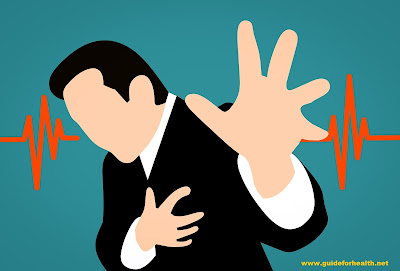Heart disease.
Heart disease describes a number of conditions that affect the heart. Heart disease includes:
Blood vessel disease, such as coronary artery disease
Irregular heartbeat (arrhythmia)
Congenital heart problems (congenital heart defects)
heart muscle disease.
heart valve disease
grades
Heart disease symptoms in blood vessels.
Cholesterol deposits (plaque) in the arteries of the heart often lead to coronary heart disease. The buildup of plaque is called atherosclerosis (ath-ur-o-skluh-ROE-sis).
It can cause a heart attack, chest pain (angina), or stroke.
Symptoms of coronary heart disease can be different for men and women. For example, men have more chest pain. Women experience chest discomfort along with other symptoms like shortness of breath, nausea, and extreme fatigue.
Chest pain, chest tightness, chest pressure, and chest pain (angina)
do not hold your breath.
Pain in the legs or arms, nausea, weakness, or cold if the blood vessels in that part of the body are narrow.
You may not develop coronary heart disease until you have a heart attack, angina, stroke, or heart failure. It is important to monitor your heart symptoms and discuss your concerns with your doctor. Cardiovascular diseases can sometimes occur
detected by routine health checks.
Symptoms of heart disease are caused by an irregular heartbeat (cardiac arrhythmia).
Symptoms of cardiac arrhythmia can include:
Chest pain or discomfort
dizziness
Fainting (syncope) or near fainting
abdominal cavity
Demand
Heart palpitations (tachycardia)
do not hold your breath
Slow heartbeat (bradycardia)
Symptoms of heart disease are caused by congenital heart defects
Congenital heart defects appear shortly after birth. Symptoms of congenital heart disease in children can include:
Gray or blue skin or lips (cyanosis)
Choking when the baby suckles causes choking
True congenital heart defects usually do not appear in childhood or adulthood. Symptoms of congenital heart defects, which are usually not life-threatening, include:
Breathe easily during exercise or activity.
Fatigue during exercise or activity
Swelling of the hands, ankles, feet
Symptoms of heart disease are caused by infection of the heart muscle (cardiomyopathy).
The early stages of cardiomyopathy will cause no real symptoms. In severe cases, symptoms may include:
Dizziness, lightheadedness, and fainting
Happiness.
Difficulty breathing during work or rest.
Shortness of breath when trying to sleep at night or waking up out of breath.
An irregular heartbeat that feels fast, jerky, or jerky
Swelling of the feet, ankles, feet
Symptoms of heart disease are caused by problems with the heart valves (coronary artery disease).
The heart has four valves: the aortic, mitral, pulmonary, and tricuspid valves. They open and close the heart to make it bleed. Many things can damage heart valves. Heart valves can narrow (stenosis), leak (regurgitation or regurgitation), or close incorrectly (prolapse).
Congestive heart disease is also called valvular heart disease. Depending on the faulty valve, symptoms of heart valve disease often include:
Chest pain
fainting (syncope)
Happiness
Cardiac arrhythmia
do not hold your breath
Swelling of the feet or ankles
Endocarditis is an infection that affects the heart valves, chambers, and heart valves (endocardium). Symptoms of endocarditis can include:
Dry or persistent cough
no fever
heart attack changes
do not hold your breath
Unusual rashes or spots
Swelling of the legs or abdomen
weakness or fatigue
when you see a doctor.
Seek immediate medical attention if you experience these heart attack symptoms:
Chest pain
Dry or persistent cough
no fever
heart attack changes
do not hold your breath
Unusual rashes or spots
Swelling of the legs or abdomen
weakness or fatigue
when you see a doctor
Seek immediate medical attention if you experience these heart attack symptoms:
Chest pain
do not hold your breath
unconscious
Always dial 911 or 911 if you think you are having a seizure.







